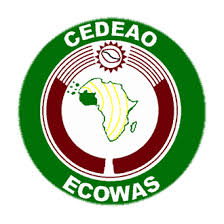ECOWAS Commission: Sustaining Regional Cooperation and Unity Amid AES Trio’s Exit
By Raymond Enoch
Paradigm News have been watching the unfolding events in West Africa since the advent Military incursion into the countries of Mali Niger Republic and Burkina Faso.The undemocratic events in 2022 and 2023 laid foundation for dissenting voices in the governance of the three countries .

n a defining moment for West Africa, the Economic Community of West African States (ECOWAS) finds itself at a crossroads following the withdrawal of three member states—Mali, Burkina Faso, and Niger—from the regional bloc. The exit, driven by tensions between these countries and ECOWAS leadership over governance and security policies, has raised critical questions about the future of regional integration and cooperation. Yet, amid the shifting political landscape, the ECOWAS Commission remains resolute in its mission to uphold regional unity, economic cooperation, and collective security.
Paradigm News thinks that though it’s a defining moment Mali, Burkina Faso, and Niger—now forming the Alliance of Sahel States (AES)—announced their departure from ECOWAS in January 2025 citing concerns over sovereignty, external influence, and disagreements over military-led transitions. Their exit marks a significant moment in the bloc’s 50 -year history, challenging its role as a driver of stability and economic integration in the region.

For decades, ECOWAS has served as the backbone of regional economic collaboration, promoting free trade, cross-border investment, and infrastructural development. The Commission has also played a pivotal role in peacekeeping, conflict resolution, and democratic governance, intervening in crises that threatened West Africa’s stability. The departure of three member states undoubtedly tests ECOWAS’s resilience, but it also offers an opportunity for introspection and strategic recalibration.
Despite the setback, ECOWAS remains a formidable institution with 12 member states still committed to its vision.
The Commission, led by President Omar Alieu Touray, has reaffirmed its dedication to the principles of regional cooperation, economic growth, and collective security.
At its core, ECOWAS was founded to promote economic integration and free movement of people, goods, and services. The bloc’s trade agreements, customs union, and currency cooperation initiatives have fostered growth across various sectors, from agriculture to industrialization. Even as the AES states withdraw, ECOWAS continues to strengthen its economic policies, ensuring that intra-regional trade and investment remain robust.
Moreover, ECOWAS has been instrumental in mediating political disputes and preventing conflicts from escalating into full-scale crises. The bloc’s peacekeeping missions, particularly in Liberia, Sierra Leone, and The Gambia, have reinforced its commitment to security and stability. Moving forward, the Commission is expected to reassess its engagement strategy with military-led governments while upholding democratic principles.
While the departure of Mali, Burkina Faso, and Niger presents an initial realignments and immediate challenges, history has shown that ECOWAS has the institutional strength and capacity to navigate such crisis circumstances.
The Commission is already exploring diplomatic channels to prevent further fragmentation and engage the AES countries in an open dialogue. African Union (AU) and United Nations (UN) partnerships remain crucial in this regard, as they provide broader frameworks for conflict resolution and cooperation.
Additionally, Paradigm News thinks that ECOWAS must prioritize strengthening its economic and security architecture to reinforce its appeal as a regional bloc. Infrastructure projects, digital economy expansion, and deeper financial integration can serve as pillars for long-term stability and prosperity. The ongoing push for a single regional currency—the ECO—could further unite member states in economic solidarity.
The next few years will be crucial for ECOWAS as it works to restore trust, reinforce its strategic relevance, and reassert its role in West African development. Engaging all stakeholders—including governments, private sector leaders, and civil society—will be key to ensuring that the vision of a united and prosperous West Africa remains intact.
Ultimately, ECOWAS’s resilience lies in its ability to adapt to shifting political realities while staying true to its foundational principles. As it charts a new course beyond the exit of the three AES countries, the Commission remains an enduring institution of regional cooperation, integration, and unity—one that continues to shape the future of West Africa








